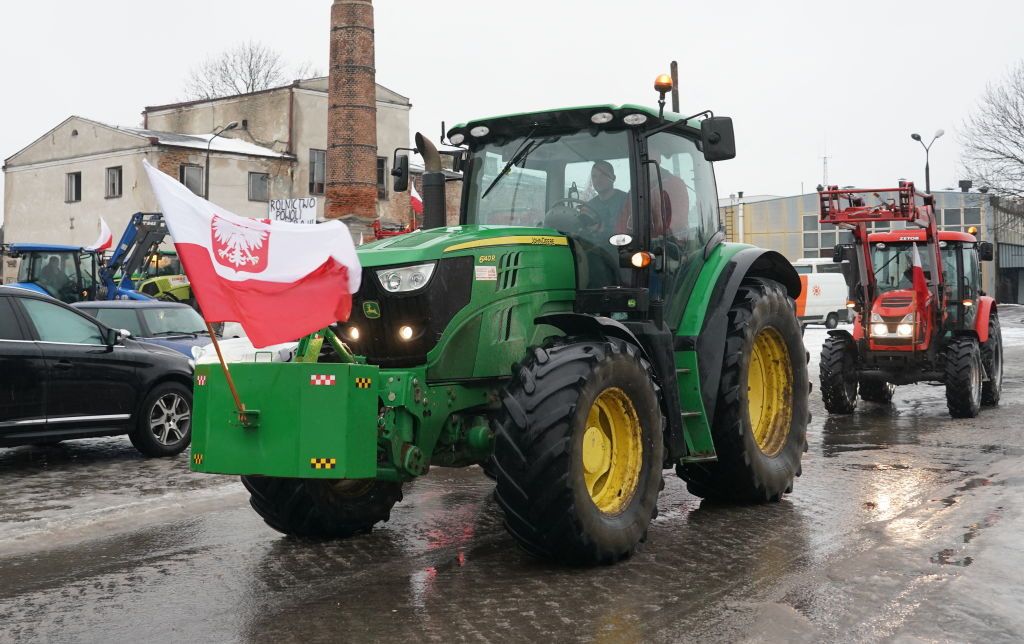Polish farmers staged a protest in Warsaw on Jan. 3, targeting agricultural imports from Ukraine and EU policies that they believe are endangering their livelihoods. The demonstration, held under the slogan “Five times STOP,” highlighted five key issues that have sparked the farmers’ concerns. These include Ukrainian imports, the EU’s trade deal with the Mercosur group of South American countries, the Green Deal, EU policies on forests and hunting, and the perceived threat to the Polish economy. The protest began in front of the European Commission representation building on Jasna Street and included a march through the city before concluding later in the evening.
The farmers’ protest in Warsaw comes as part of a series of demonstrations that have taken place in recent months, with Polish farmers and truckers also staging protests at the Polish-Ukrainian border. These protests have led to import bans on certain Ukrainian products, such as grain, as the farmers continue to push back against what they see as detrimental EU policies. The Polish government has expressed support for the farmers’ concerns, acknowledging the challenges posed by the EU’s trade policies while also emphasizing solidarity with Ukraine amid the ongoing conflict.
In response to potential disruptions in energy supplies to Ukraine, Poland has indicated its readiness to increase domestic electricity production if Slovakia halts the delivery of backup power supplies to Ukraine. This move reflects Poland’s commitment to supporting Ukraine during a critical time, as the country navigates challenges on multiple fronts. The willingness to step up energy exports to Ukraine underscores Poland’s strategic role in the region and its desire to contribute to the stability and resilience of its neighbor.
The farmers’ protest in Warsaw underscores the deep-rooted concerns within the agricultural sector in Poland, where farmers are grappling with the impact of EU policies on their livelihoods. The demonstration serves as a platform for farmers to voice their grievances and push back against what they perceive as detrimental decisions that could threaten the viability of their farms. By coming together in solidarity, the farmers are sending a strong message to policymakers and the EU leadership about the need to address their concerns and ensure the sustainability of the agricultural sector in Poland.
As the protest unfolds in Warsaw, it highlights the complexities of the agricultural sector in Poland and the broader implications of EU policies on the livelihoods of farmers. The tensions between local interests and EU directives are laid bare, as farmers seek to protect their businesses and preserve their way of life in the face of external challenges. The protest also sheds light on the interconnectedness of economic, political, and social factors that shape the agricultural landscape in Poland, underlining the need for a comprehensive and inclusive approach to address the concerns raised by the farmers.
In conclusion, the farmers’ protest in Warsaw reflects a broader struggle within the agricultural sector in Poland, where farmers are standing up against what they perceive as threats to their livelihoods and the sustainability of their farms. The protest serves as a platform for farmers to unite and voice their concerns, highlighting the need for policymakers and the EU leadership to engage with the agricultural community and address their grievances. As Poland navigates complex challenges, including energy supply issues and trade relations, the farmers’ protest underscores the importance of finding a balance between local interests and broader policy objectives to ensure the resilience and prosperity of the agricultural sector in the country.


